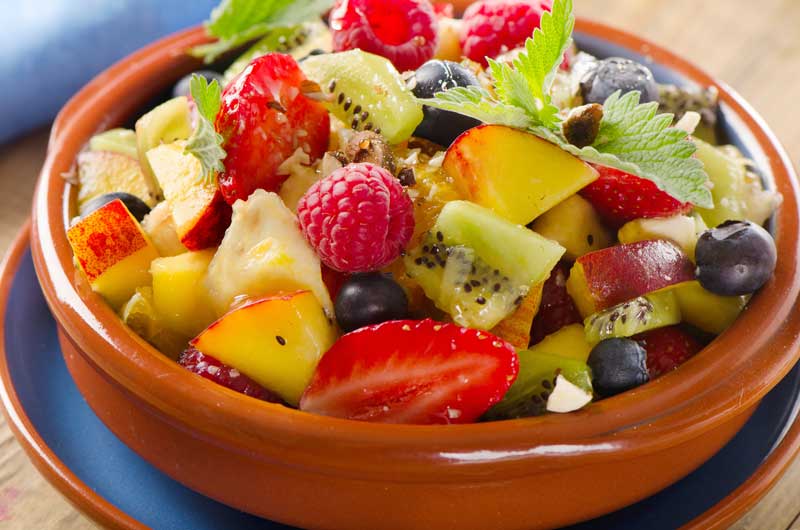Typical Mediterranean dishes are often high in fat, yet people who eat on this diet have less cardiovascular disease than average (1). In fact, people on the Mediterranean diet have as much as a 25% lower risk of developing cardiovascular disease and a 30% lower chance of death by stroke (1). Read on to learn how to improve your health while still eating a tasty, rich array of foods by following the Mediterranean diet.
Mediterranean Diet Basics
The Mediterranean diet involves some meat and dairy but more plant-based foods. Relatively large amounts of fat are allowed, as long as it is the right kind of fat. Snacking is allowed on this diet, as long as the snacks come from the legal food list.
What Foods Are Legal on the Mediterranean Diet?
• Fruits and vegetables. You should eat several servings of these foods every day.
• Nuts. You should eat one or more servings a day.
• Whole Grains. Enjoy all the whole-grain pasta, bread, and cereal you want.
• Extra Virgin Olive Oil. This should be the only oil you use. Olive oil actually turns bad cholesterol into good cholesterol inside your body. Use it in place of butter and other oils. You should also use uncooked olive oil on salads in place of dressing, along with a little vinegar. Uncooked olive oil is healthier than cooked olive oil.
• Poultry. Poultry should be your main source of meat. You can have it on a daily basis.
• Seafood. All forms of seafood are allowed. You should eat seafood two or three times a week.
• Dairy Products. Dairy products, especially cheese and yogurt, can be enjoyed in moderation. Do not eat them every day, though.
What Foods are Illegal on the Mediterranean Diet?
• Red Meat. While red meat is alright as an occasional treat, you should mostly avoid it.
• Trans Fats. Never eat food made with trans fats. That means no margarine or processed foods.
• Refined Oils. No canola or soybean oil allowed.
• Added Sugar. No candy, pastries, soda, or other sugary treats. Instead, snack on nuts or fruit.
• Refined Grains. No white bread.
Mediterranean Diet Meals
Breakfasts
Omelet made with onions and tomatoes or mushrooms served with a half cantelope
Whole grain toast and plain yogurt with berries
Oatmeal with raisins
Whole grain cereal
Fried eggs (made with olive oil) and a half grapefruit
Olive omelet served with a side of mixed berries
Whole grain muffin and yogurt
Snacks
Apple and cheese slices
Nuts
Peanut butter and apple slices
Fruit salad
Lunches
Salad with olive oil and balsamic vinegar served with a vegetable quiche
Tuna salad sandwich on whole grain bread
Cheese sandwich on whole grain bread
Enselada caprese, a Greek salad made with tomatoes, mozzarella, and basil
Egg salad sandwich on whole grain bread.
Potato salad
Chicken salad
Dinners
Grilled chicken served with a vegetable side dish
Argentinean egg salad, made with diced hard boiled eggs, diced beets, and white vinegar.
Vegetarian lasagna.
Broiled salmon served with a side of rice
Tuna casserole
Beans and rice
Chicken quiche
Desserts
Fruit salad
Yogurt with berries
Baked apples with cinnamon
The Mediterranean diet is not only healthy, it’s delicious. Once you get used to eating on this diet, you’ll never want to go back to your old way of eating.
References
1 hsph.harvard.edu/nutritionsource/healthy-weight/diet-reviews/mediterranean-diet/




